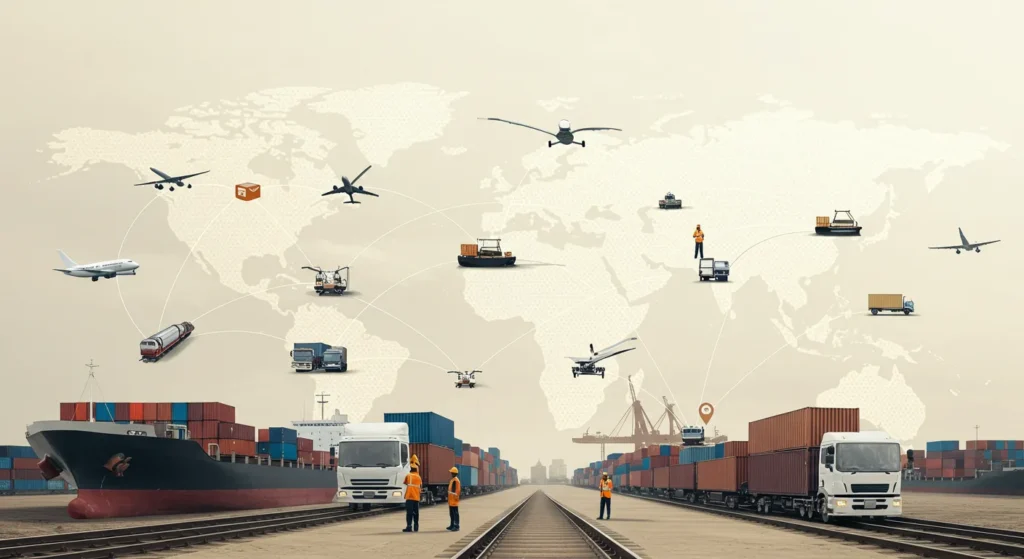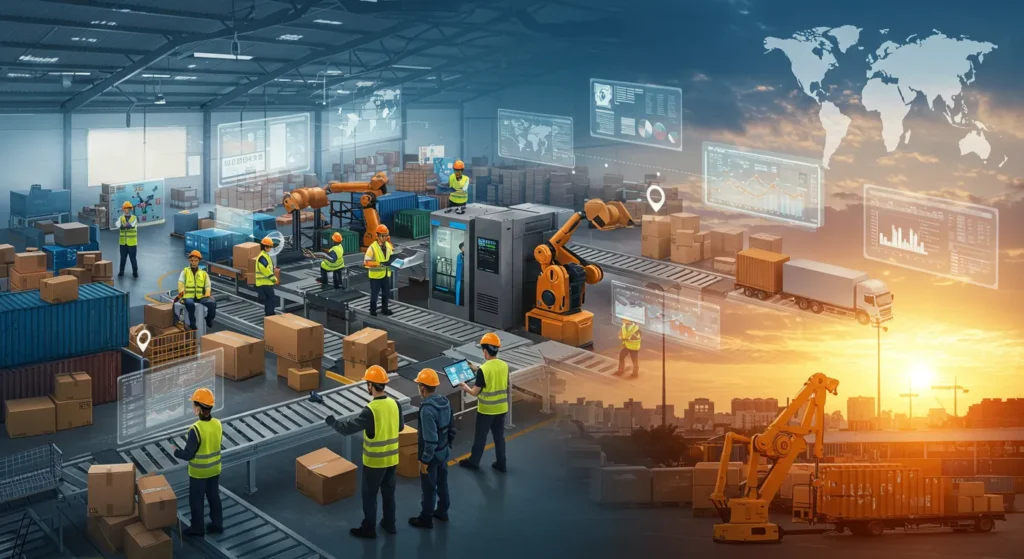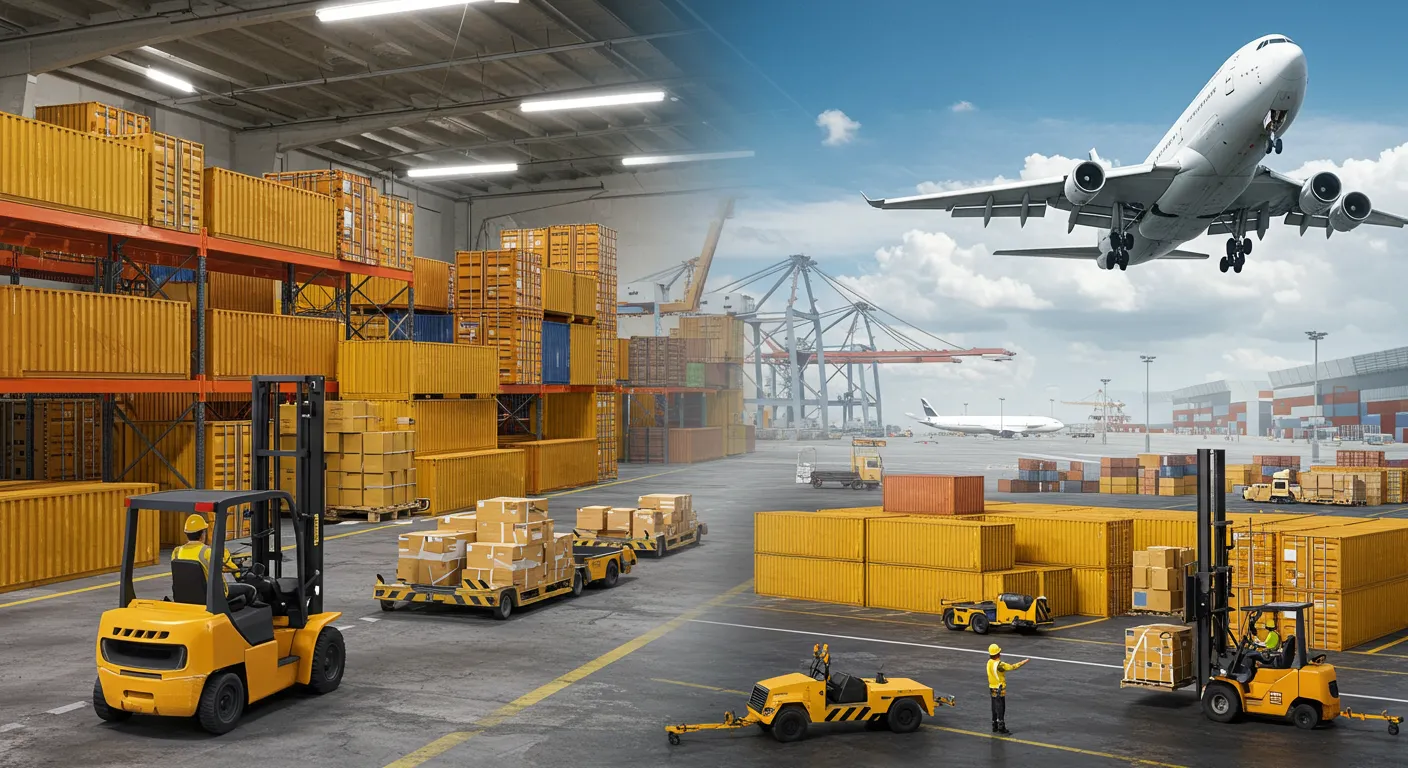Table of Contents
Campaign logistics play a crucial role in ensuring the success of any campaign, whether it’s a political campaign, a product launch, or a health initiative. Efficiently managing logistics is the difference between a seamless execution and a chaotic failure.
This guide takes a detailed approach to managing campaign logistics, offering practical steps to streamline execution and avoid common pitfalls.
The Importance of Logistics in Campaign Management
Effective campaign logistics management involves coordinating people, materials, time, and finances to meet the campaign’s objectives. Without a solid logistics plan, even the most carefully thought-out campaigns can fail due to poor coordination or unforeseen setbacks.
Campaign logistics go beyond just moving materials or scheduling events it’s about ensuring everything is in place to meet the campaign’s goals effectively.
Campaign Logistics Planning: Laying the Foundation

A successful campaign begins with a well-structured logistics plan. This plan should break down all necessary tasks and organize them into an achievable framework. A solid logistics strategy aligns all resources with the campaign’s objectives, leading to smoother execution.
Defining Clear Campaign Goals
Before planning logistics, it’s crucial to define clear, measurable campaign goals. Whether it’s raising awareness, securing votes, or launching a product, knowing exactly what success looks like from the outset will help guide all logistical decisions. These goals should meet the SMART criteria:
- Specific
- Measurable
- Achievable
- Relevant
- Time-bound
Clear goals ensure that all campaign activities are focused, and they serve as a benchmark to track progress.
Developing a Timeline and Scheduling
Once your goals are set, the next step is developing a detailed campaign timeline. This timeline should set deadlines for specific tasks and key milestones, and ensure that every activity is aligned with the overall schedule.
A campaign timeline acts as a roadmap, ensuring that all tasks are completed in the right order and at the right time. Without a timeline, activities can become disorganized, leading to missed deadlines or overlooked steps.
Also Read: USPS Informed Delivery: How to Preview Your Mail & Manage Packages for Ultimate Convenience
Effective Resource Management for Campaigns
Resource management is at the heart of campaign logistics. It involves budgeting, managing materials, staffing, and vendor relations. Effective resource management ensures that campaigns run efficiently and stay within budget.
Budgeting for Campaign Success
Campaigns operate with a set budget, and proper budgeting is key to maintaining financial control. This involves allocating funds to key campaign components like staff, transportation, promotional materials, and events. Regularly monitoring the budget ensures that the campaign stays on track and helps avoid overspending.
Material Management
Material management is another essential part of campaign logistics. Whether it’s printed brochures, event signage, or digital resources, ensuring that all necessary materials are ready and available is critical.
Efficient material management involves:
- Inventory control
- Procurement processes
- Distribution planning
All of this ensures that the right materials are in the right place at the right time, preventing shortages or delays.
Staffing and Volunteer Coordination

A campaign’s success often hinges on the efficiency and dedication of its team. Managing human resources involves recruiting, training, scheduling, and assigning roles to staff and volunteers to ensure they are in the right place at the right time.
Vendor Relationships and Supply Chain Management
Many campaigns rely on external vendors for services such as printing, transportation, and media buying. Building strong relationships with vendors ensures smooth coordination and timely delivery of services. Clear communication and setting expectations from the beginning can prevent delays and misunderstandings.
Overcoming Challenges with Contingency Planning
No campaign is without its challenges, which is why having contingency plans in place is essential. Unexpected disruptions whether from supply chain issues, staffing shortages, or external factors like weather can derail a campaign if not properly prepared for.
Handling Supply Chain Disruptions
Supply chain disruptions are one of the most common logistical challenges. Whether it’s a delay in receiving materials or changes in vendor availability, these issues can cause setbacks. Campaign managers can mitigate these risks by:
- Building relationships with multiple suppliers
- Keeping a stock of critical materials
- Developing backup plans for key resources
Staffing Shortages and Turnover
Staffing shortages often occur during peak periods of activity. Anticipating these challenges is key, and campaign managers should develop a recruitment and training program to avoid delays. Retaining staff and volunteers through incentives and recognition is also crucial to maintain morale and engagement.
External Factors: Weather, Political, and Social Changes
Adverse weather conditions, political instability, or social changes can also impact logistics, especially for outdoor events or public gatherings. Having flexible plans that can be adapted to changing circumstances is essential for handling these risks.
Evaluating Logistics Effectiveness
Campaign logistics management doesn’t end once the campaign is underway. Ongoing evaluation is necessary to refine logistics strategies and improve future campaign performance.
Data Collection and Analysis
Gathering data throughout the campaign allows managers to track key performance indicators (KPIs) like:
- Delivery times
- Resource usage
- Participant engagement
By analyzing this data, campaign managers can adjust their approach and optimize performance in real time.
Stakeholder Feedback

Incorporating feedback from staff, volunteers, and participants is vital for refining logistics. Conducting post-campaign evaluations and debriefing sessions can provide valuable insights into what worked well and where improvements are needed.
The Key to Successful Campaigns
Managing campaign logistics effectively requires a combination of:
- Careful planning
- Efficient resource management
- The ability to adapt to unexpected challenges
By setting clear goals, creating detailed logistics plans, and preparing for disruptions, campaign managers can ensure that their campaigns run smoothly and successfully. Continuous evaluation through data analysis and stakeholder feedback further helps refine logistics strategies for future success.
Closing word
Campaign logistics are the backbone of any successful campaign. By implementing these best practicesclear goal setting, efficient resource management, contingency planning, and effective evaluation campaign managers can execute campaigns that run smoothly and achieve their objectives.
By staying proactive and continuously refining their approach, they can handle any challenge and deliver a campaign that truly resonates with their audience.
FAQs
What is campaign logistics?
Campaign logistics involves planning, organizing, and managing resources, materials, and staff to ensure a campaign runs smoothly and meets its objectives.
Why is resource management important in campaigns?
Resource management ensures that materials, budget, and personnel are allocated efficiently, helping campaigns stay on track and avoid delays or overspending.
How can I handle unexpected challenges in campaign logistics?
Develop contingency plans, maintain vendor relationships, and regularly assess logistics to adapt quickly to disruptions like staffing shortages or supply chain issues.

